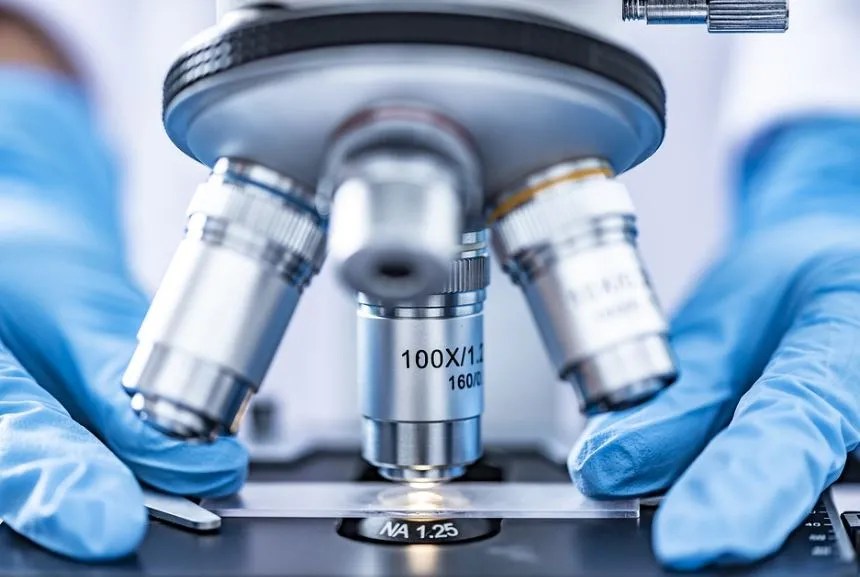
There are various factors to consider when deciding the best course to study as a science student. In this article, our focus will be on Biochemistry as a course of study and possibly a career path as a biochemist. Before we go further, I believe it’s only idle that we understand what Biochemistry entails.
The field of study known as biochemistry studies the chemical reactions that take place inside and around living things. It can also be said to be a science that combines chemistry, biology and is laboratory-based. Biochemists may comprehend and address biological issues by utilizing chemical understanding and methods.
Also, the study of life’s chemistry is known as biochemistry. As biochemistry major, you will investigate the composition and attributes of biological molecules and the connection between their chemical makeup and how they operate in living organisms. A biochemistry degree gives you access to essential hands-on laboratory instruction from your first year, preparing you for the working world.
The focus of biochemistry is on molecular-level events. It focuses on internal cellular processes, looking at lipids, proteins, and organelles. Additionally, it examines how cells interact with one another, for instance, when growing or fending off disease. Biochemists must comprehend how a molecule’s structure links to its function to forecast how molecules interact.
Biochemistry Historical Background
About biochemistry, before chemistry could make a meaningful contribution to agriculture and health, it had to break free from practical constraints and transform into pure science. That took place between 1650 and 1780, beginning with Robert Boyle’s work and finishing with that of Antoine-Laurent Lavoisier, the one who founded modern chemistry. Boyle challenged the tenets of the prevalent chemical theory of the time and professed that the true goal of chemistry was to ascertain the makeup of things. John Mayow, a contemporary of his, noticed the essential similarity between an animal’s respiration and the burning, or oxidation, of organic materials in the atmosphere.
In the late 18th century, chemists became interested in photosynthesis as another biological phenomenon. A turning point in the evolution of biochemical theory was the showing by Joseph Priestley, Jan Ingenhousz, and Jean Senebier that photosynthesis is fundamentally the opposite of respiration. Lavoisier then quantitatively demonstrated the similarities between the respiratory process and chemical oxidation after doing his foundational research on chemical oxidation and understanding its real nature.
Despite these early foundational findings, organic structure chemistry, one of the greatest triumphs of 19th-century science, had to evolve before biochemistry could advance quickly. There are thousands of distinct chemical compounds found in every living thing. Science has few well-defined divisions, and the divisions between organic and physical chemistry and biochemistry have always shown significant overlap. Physical and organic chemistry theories and methodologies have been appropriated by biochemistry and applied to physiological issues. The assumption that the changes that matter underwent in living things were not governed by the same chemical and physical prohibitions that applied to inanimate objects and that; as a result, these “vital” phenomena could not be explained in terms of ordinary chemistry or physics initially stymied progress in this direction.
Fields of Study For Biochemists
Numerous fields of study are covered by biochemistry, such as genetics, microbiology, forensics, Cytologist, Marine Biologist, Epidemiologist, plant science, and medicine. Other common career options include;
1. Food Scientist
Agricultural food scientists research and create strategies to increase the production or sustainability of animals and crops. Food scientists could focus on a particular area, such as soil, plants, or cattle. They could also operate as food technologists, creating fresh food items, innovative packaging, or innovative ways to spot pollutants. Although it’s not unusual to find food scientists with doctoral degrees, entry into the industry may just require a biochemistry bachelor’s degree plus engineering training.
2. Biomedical Engineer
Biomedical engineers create new technologies for use in medicine and healthcare. They could create anything like new medical computer systems, artificial limbs, or internal organ substitutes. Strong knowledge of biology, chemistry, computer science, and engineering is very important for this position. Although postgraduate degrees are also prevalent, many biomedical engineers find employment after earning a bachelor’s degree in biomedical engineering or bioengineering. If you are graduating with a biochemistry degree, you will probably need to take a lot more engineering-related coursework or seek a master’s degree in bioengineering or another branch of engineering.
3. Medical Laboratory Technologist
Medical lab technicians often examine samples of bodily fluids, tissues, and other biological materials. That is a wide phrase that refers to many responsibilities in particular. A lab technician may have a specialty in examining the chemical composition of bodily fluids such as blood and urine. They can also focus on cytotechnology, which involves inspecting cells for anomalies that indicate malignancy, or microbiology, which examines and classifies germs. For entry-level work, a bachelor’s degree in a relevant discipline may be sufficient; however, some companies may also demand that candidates finish a laboratory science program, which usually takes no more than two years to complete.
4. Toxicologist
Toxicologists are specialists in chemicals and poisonous substances who utilize their knowledge to investigate, assess, and determine the safety of chemical goods and medications. To assess the safety of their goods, water, pharmaceutical, and chemical firms frequently use toxicologists. Additionally, they could work for government-regulated businesses like National Agency for Food and Drug Administration and Control (NAFDAC) or Environmental Protection Agency (EPA). You can enter the sector with a biochemistry bachelor’s degree, while further degrees could be helpful for career growth.
5. Science Journalist
A biochemistry degree can help you become ready for a job as a scientific writer if you’re passionate about science but want to write for a living. However, a degree doesn’t translate to being a writer, one in biochemistry or another scientific discipline might provide you with the information you need to cover your topics thoroughly. For publications such as newspapers, journals, or online, scientific journalists can write about any area of science.
6. University Professor
Many biochemistry majors become professors in their field, as is the case with many scientific students. For biochemists, teaching at the college level is a fantastic career choice since it allows you to both conducts your research and encourage the future generation of scientists. You need at least a master’s degree to work as a Lecturer at the University level unless in a situation where you graduated with a First class and you are retained as a graduate Assistant, but a Ph.D. is often required for a full-time position on the tenure track.
Functions of Biochemistry in Business
In many different contexts, biochemistry is crucial. Applications of advancements in this sector may be found in a wide range of industries, including the environment, agriculture, medicine, cosmetics, and many more. In reality, advances in biochemistry influence both public policy and legislation.
Biochemistry as a function in business can prevent pollution, protect crops from disease and pests, test unborn children for disease, create biocompatible goods, and do many more things to keep our food, bodies, and world safer.
Biochemistry is frequently a collaborative subject in business. To achieve their objectives, biochemists frequently collaborate with specialists from other specialties.
Common Employers of Biochemists
The following public sector jobs are among the top ones for biochemistry graduates:
- Agency for Environment
- Services in forensic science
- Government agencies
- Service National de la Santé
- Research organizations
- Universities.
Opportunities can be found at company labs and public health facilities worldwide, including Public Health.
Graduates in biochemistry can find work in the private sector. Pharmaceutical, biotechnology, food, water, and agricultural businesses are typical employment. Biochemists are employed by small businesses to perform specialized services like toxicological research.
Publishers of scientific and medical literature and the Intellectual Property Office are additional employers (as patent examiners). Additionally, you might apply your understanding of biochemistry in fields like sales and marketing, where you can promote the newest technologies and law firms that deal with scientific litigation.
Working Experience
With laboratory-based research and your final year research project, you gain practical and technical skills that will prepare you for a career in research or technological fields. Your chances of landing a job will be improved if you have some work experience, such as a summer internship at a research lab or business.
Some colleges offer a four-year undergraduate program, including a placement year in industry or research. That is often done at a research facility, the pharmaceutical or biotechnological industry, or both. Additionally, there are options for international placements, which might improve your job possibilities. Work internships offer possibilities for networking and the further development of important skills.
Whatever your job goals, it’s critical to supplement your education with supplementary knowledge and experiences that demonstrate your initiative and engagement with the world.
Necessary skills for a Biochemists Resume
Asa Biochemist, you must learn how to prepare your resume using a professional resume template to meet certain skills and requirements as seen on the vacancy.
As you pursue your degree, you’ll gain expertise in a variety of biochemistry-related areas, including:
- Thorough understanding of molecular biology methods
- Specialized laboratory knowledge
- The capacity to comprehend intricate biological processes
- The capacity to construct a case and participate in discussion analytical abilities
- Critical examination of the facts, research, and problem-solving.
- Other common abilities include:
- Math, IT (information technology), communication, report-writing, time management, and report-writing.
- Also, the capacity for autonomous work, self-management, collaboration, and deadline adherence.
- Giving examples from your degree course’s group projects and practical work, as well as from any prior employment, can help you illustrate your experience in these areas.
Five (5) Good Reasons to Study Biochemistry
1) Its a Professional Course
Whether you wish to work in business or pursue further study and research in a particular sector, biochemistry is adaptable and may be used in many different industries and specialties. The University of Nigeria Nsukka allows you to combine biochemistry with other biomolecular science courses to increase your degree’s flexibility and allow you to focus on your interests and areas of specialization. Microbiology, pharmacology, and immunology are included in combined programs.
2) High Career prospects
If your future seems a little bleak for you at the moment, biochemistry is the ideal pick because it may lead to a wide variety of related occupations. Among many other professions, you may work in a research lab, product development, healthcare, or forensics. You can study whatever you want if you choose biochemistry since it studies life’s building blocks. This is supported at Strathclyde by a solid research foundation, connections to business, the NHS, and international collaborators, all of which helped the program be placed among the top five in the UK for Biological Sciences.
3) Functional Abilities
After graduation, you’ll need more than just your degree to succeed in finding work; you’ll also need transferrable abilities that are relevant to the position you’re seeking for. You may study problem-solving, data analysis, process building, and project management with biochemistry—skills necessary for whatever field you decide to pursue. When you’re prepared to start looking for a job, this means you may apply for a larger variety of positions. Graduates of biochemistry programs often pursue careers in finance, business, or teaching, to mention a few, in addition to working in laboratories.
4) Originality
When studying biochemistry, one must experiment with new concepts and look at systems from fresh angles. That is a useful talent that will advance you as a job applicant in life and the workplace. Finding fresh ways to look at things might present interesting opportunities. The act of testing hypotheses will equip you to create advancements in the industry of your choice, whether it be pharmaceutical medication research, genome sequencing, changes in the food and agriculture industry, or something else new.
5) Recognize how life is based on molecules
Finding answers to the myriad problems the world is currently experiencing may depend on our ability to comprehend how this life and the systems that make it up to work. Your choice of biochemistry will provide you with the knowledge necessary to comprehend the world and how to make it better.
So, if you are an undergraduate, the following reasons above should help you decide whether you would like to study biochemistry or not. The choice is yours to make.
This article is meant to inform students or any individual looking to study biochemistry or venture into a career in biochemistry.




